Introduction
ICED is an openworld game that attempts to teach players about the truth about immigration laws in America by putting them in the shoes of one of several immigrants.
Below is a detailed analysis of this game roughly following Brian Winn's1 Design/Play/Experience framework, including:
Learning
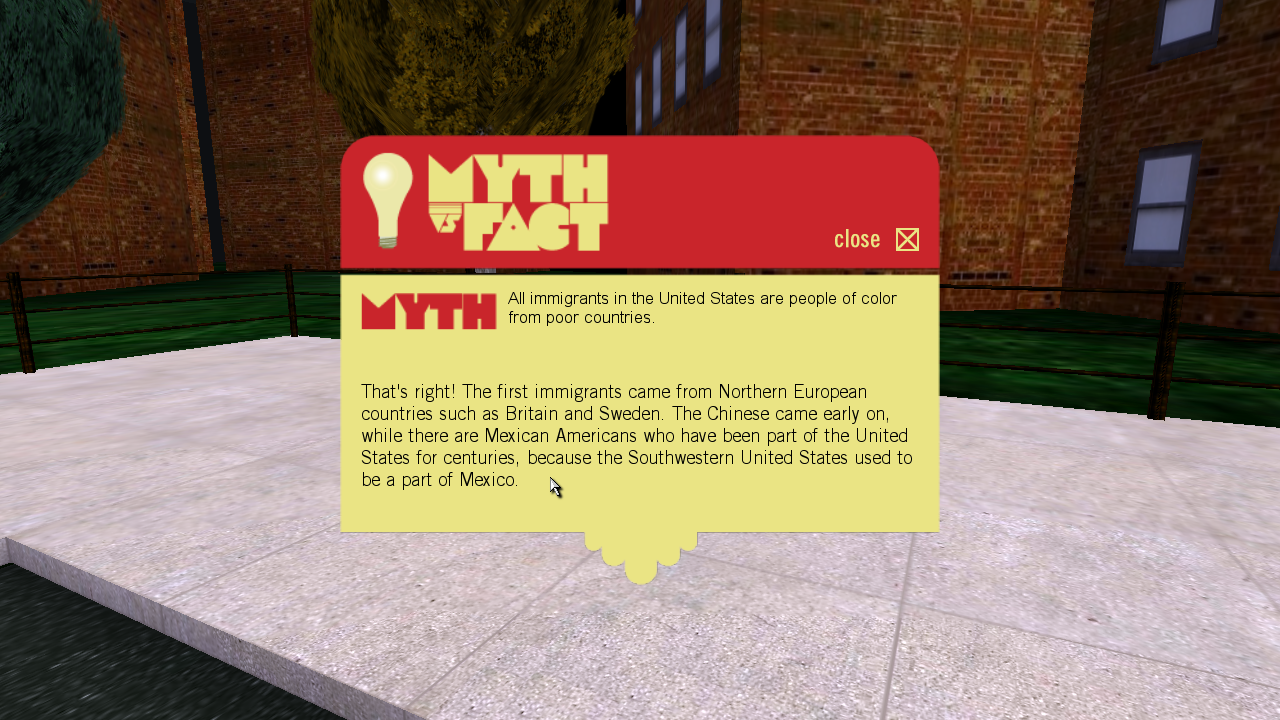
ICED: I Can End Deportation is targeted towards high school / college students and has the following goals:
- Learn about the truth behind various immigration "myths".
- Learn about the deportation process.
- Learn about immigration laws.
- Encourage players to take action regarding immigration reform.
Storytelling
ICED allows players to choose from several different immigrants with different backgrounds and different issues. It is meant to frame the game for players in such a way that they understand the struggles these immigrants have been through and how they're not just trying to live their lives. An example of this is Suki, who is just a student with a student visa who didn't realize he needed to attend class full time in order for that to remain in effect.
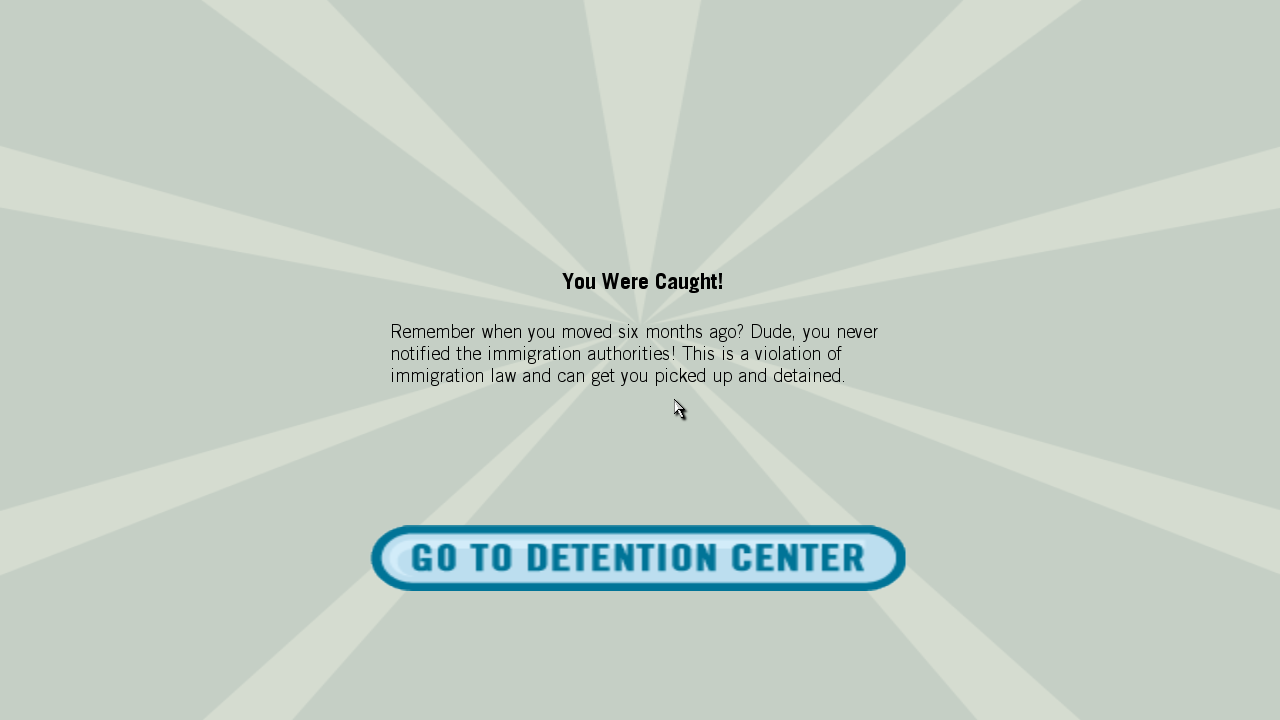
These stories, in my opinion, don't really seem to help the learning goals of the game because players do the same things irregardless of what character they play. In fact, it is possible the story hampers the gameplay as the very anti-"current immigration" laws attitude of the game seems heavy handed and tries desperately to convince the player that immigration reform is necessary.
Gameplay
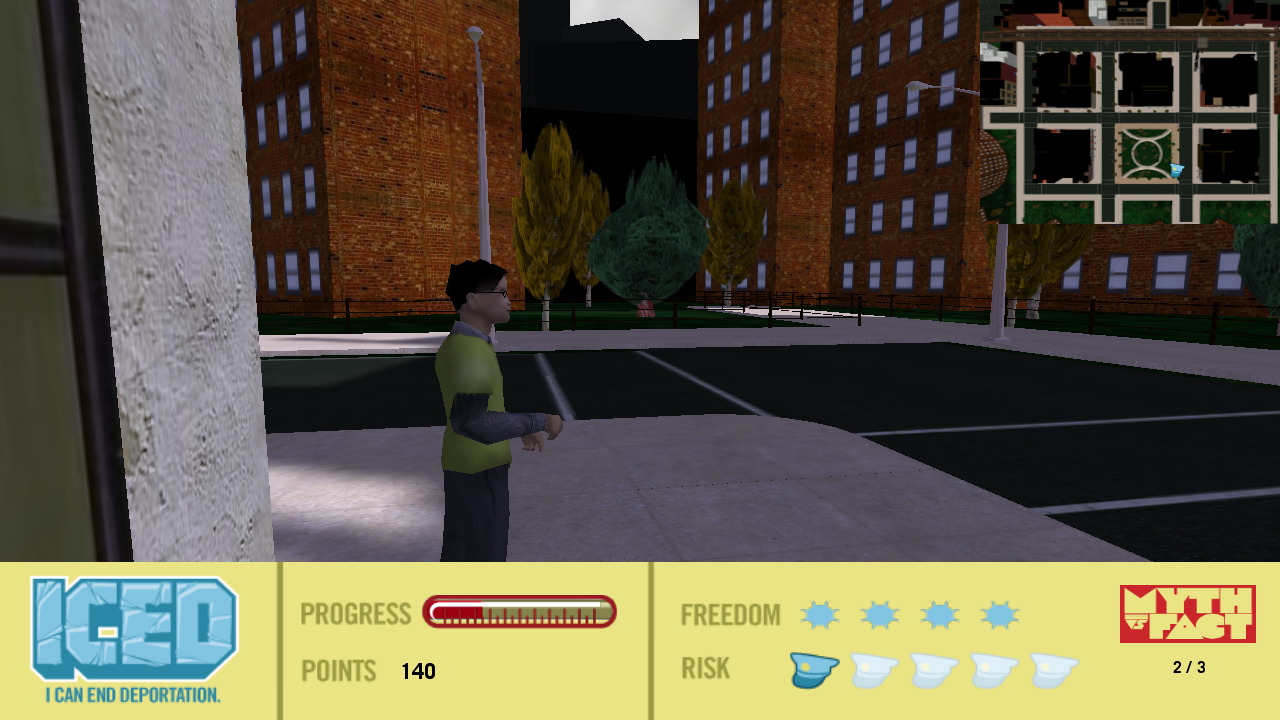
The gameplay in ICED involves players walking around a city, making choices at certain points about whether they should, for example, pay for bread or steal it because they cannot afford it. Making the right decisions increases the "progress" meter, but making the wrong decision increases the amount of immgiration officers on the map. Get caught by one and you are sent to a detention facility. The game essentially boils down to walking around, finding events, making the right decision in these events, and advancing the progress meter. Additionally, there are "Myth or Fact" questions that pop-up testing the player's knowledge about current immigration policy. Finally, there is also the points system, which increases for the amount of points you have for doing good deeds, but decreases for making mistakes.
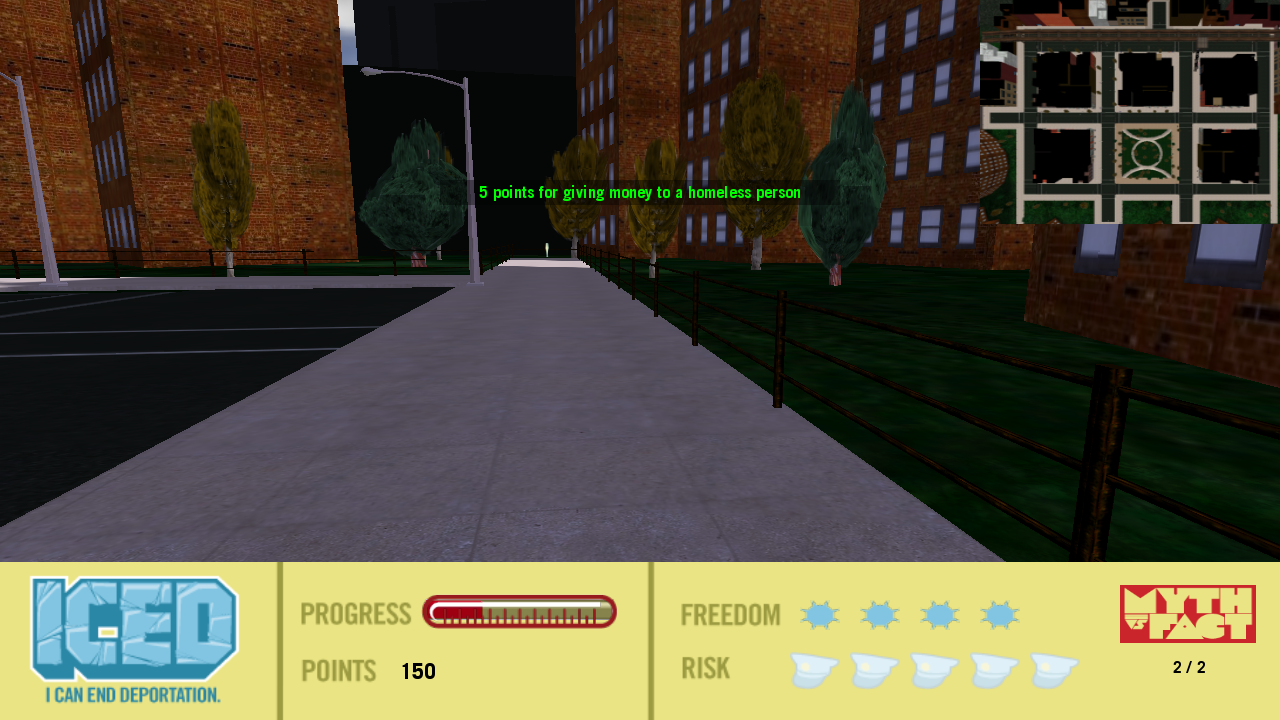
In detention, things don't really change, but now the tasks include calling and meeting a lawyer and scheduling a hearing to make your case. It is possible to "lose" at this phase too, as you may end up getting deported depending on your actions in the facility.
I belive the player is meant to experience shock and dismay when playing this game because of how heavy handed it is in some of its choices. For example, you can't call the cops on a wife whose being abused by her husband because you might get in trouble. Additionally, the facts/myths presented include things like stating it is possible for a 40 year old greencard holder to be departed because of a minor felony they committed as a teenager.
Finally, the game is meant to get players to gradually realize that as an immigrant it is important to have constantly make yourself priority number one, while still staying within the confines of the law. This goes back to the scenario where you're merely meant to walk away from a wife being abused because you could, somehow, get in trouble with the police.
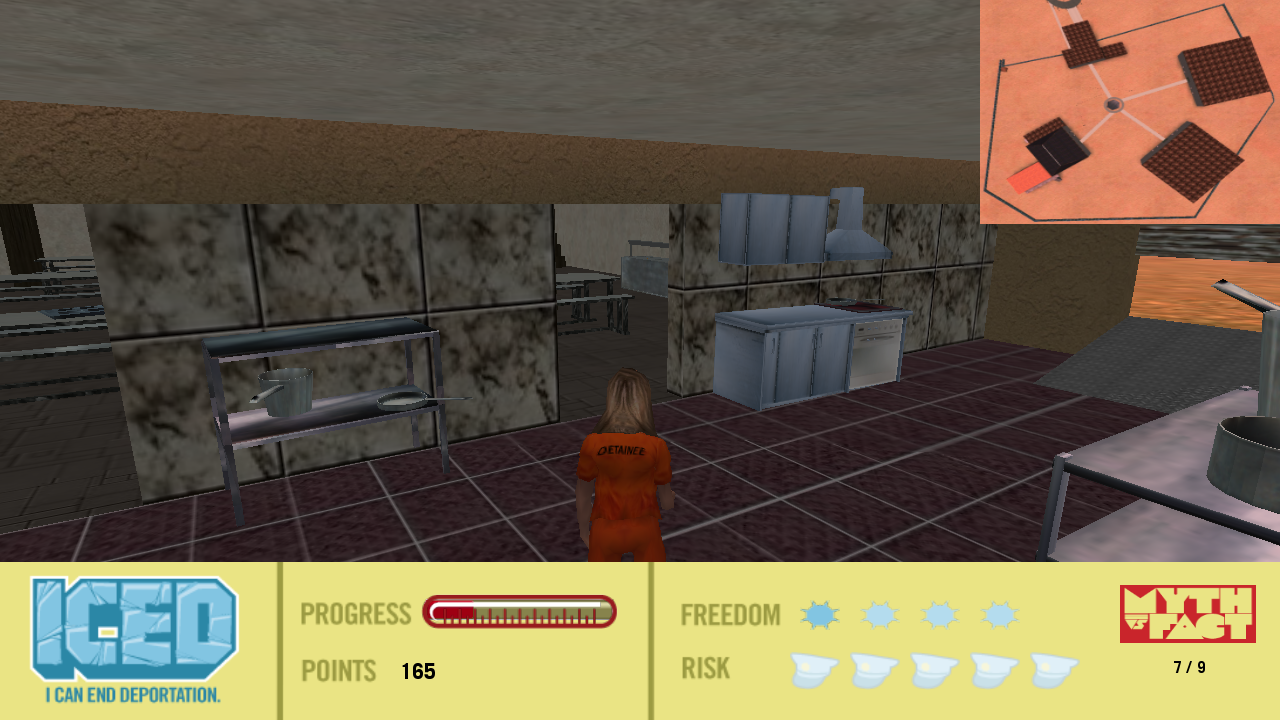
The game's gameplay don't really help support the learning, as most of the important information is telegraphed through the questions asked of the player, and through voice overs warning of how dangerous life as an immigrant can be.
In terms of gameplay the game seems well balanced, but in terms of message it is clearly not. The game doesn't offer insight onto the other side of things, but is constantly making it seem like the government is a somewhat malevolent entity because of the way it treats immigrants.
User Experience
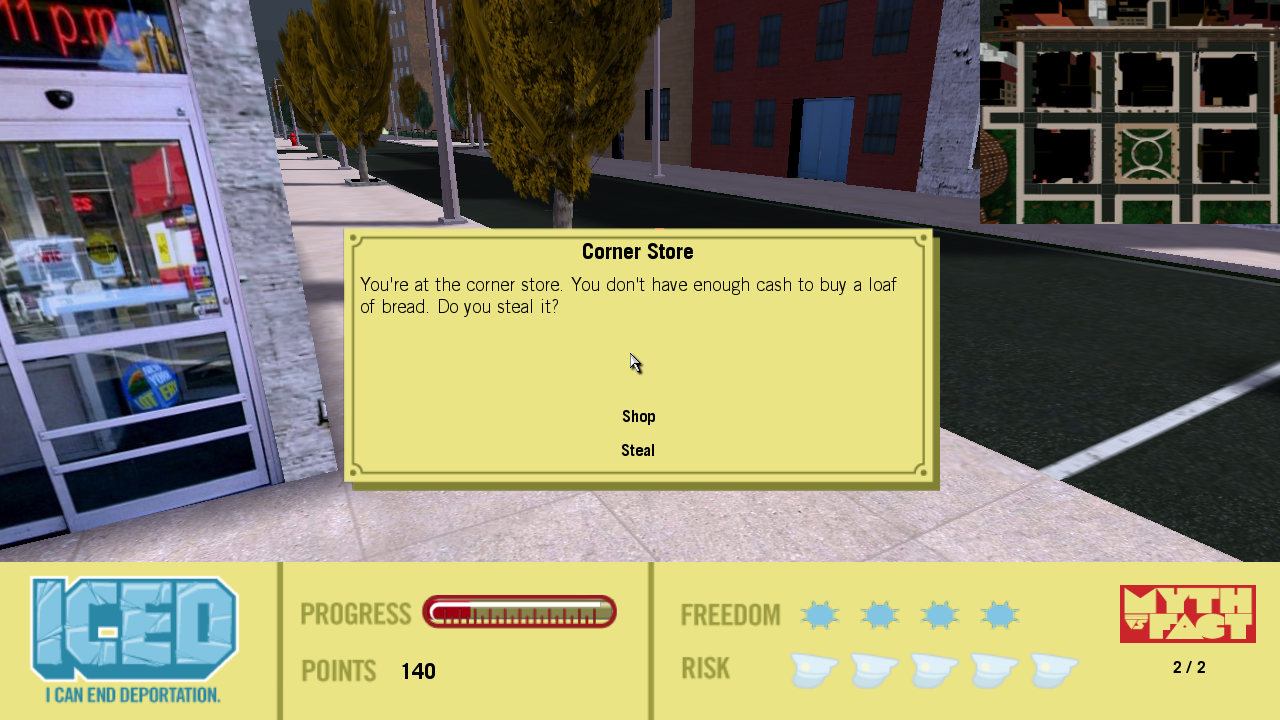
The user experience of ICED is relavitlvey simple and does little to get in the way of the learning goals. The open world makes it feel like you're living the life of someone else, and the actual UI is relatively straightforward and clear.
Technology
ICED is a free PC game developed using Garage Games' Torque 3D engine. Additionally, tools such as Maya were used to create the art content. The game was made in 2008 and doesn't seem to run well on a Windows 8 in either Windows 8 or Windows XP compatability mode. Being unfamiliar with Torque I cannot say if this is a personal issue with my computer or a fault of the engine used.
Assessment
When downloading the game players are asked to fill out an optional pre-game survey. This acts as a pre-test. The survey also mentions that after completing the games players can fill out a post-game survey. This is, clearly, a post-test. The pre-test asks aboout personal experiences with immigration, and then asks questions regarding what you believe regarding various facts / myths on immgiration laws in the US. Presumably, as I could not complete the game, the post-test asks questions that are similar to the second half of the pre-test, and possibly some questions seeing how player attitudes have changed towards immigration policty.
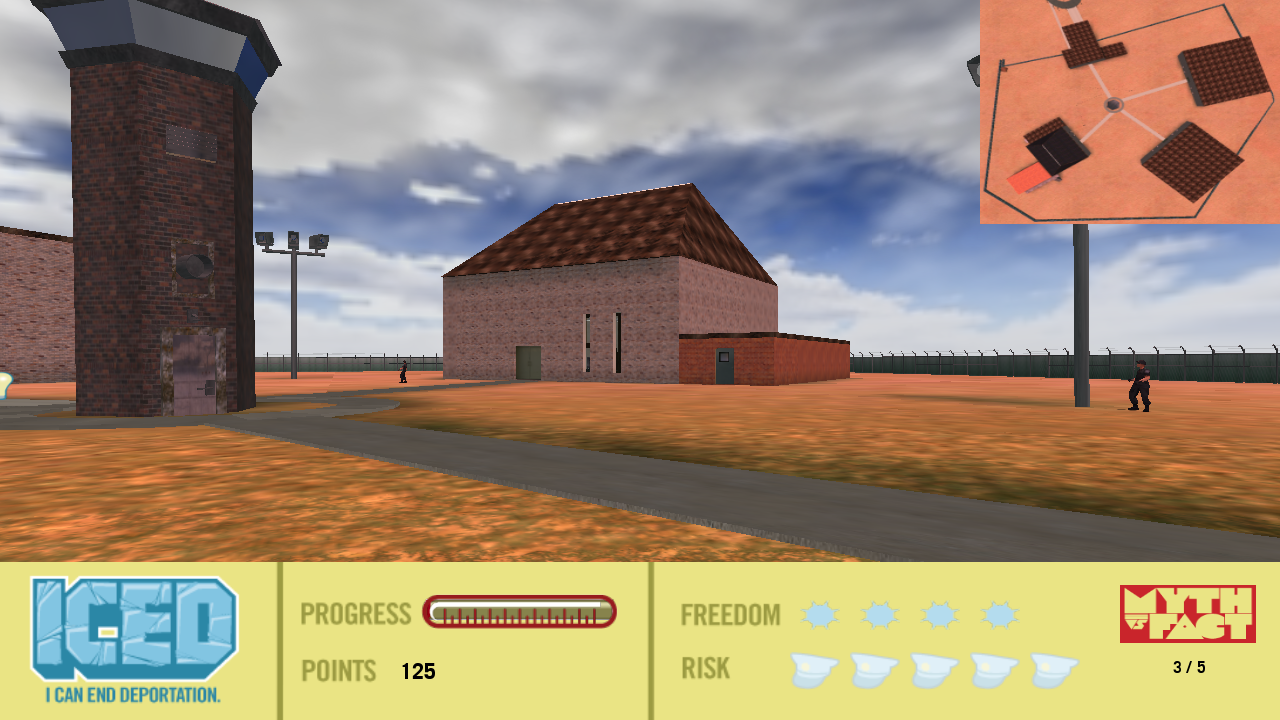
Conclusion
Overall I believe ICED is a rather attempt at being a serious attempt to get immigration law information into student's hands. It relies more on scare tactics than anything else. This is mostly due to the tone and the language of the game.
The game ran poorly on my machine and also impacted my opinion of it, because I didn't get the sense I was actually in control half the time. For example, when answering a question wrong and being chased by an immgiration official, my game stuttered along and I just got caught nearly instantly.
Finally, as an immgirant myself I was very surprised by the facts presented to me. The tone of the game made them seem outrageous, and I actually had a hard time believing they were true in any way shape or form. It sounded more like all immigrants were treated like terrorists than regular people.